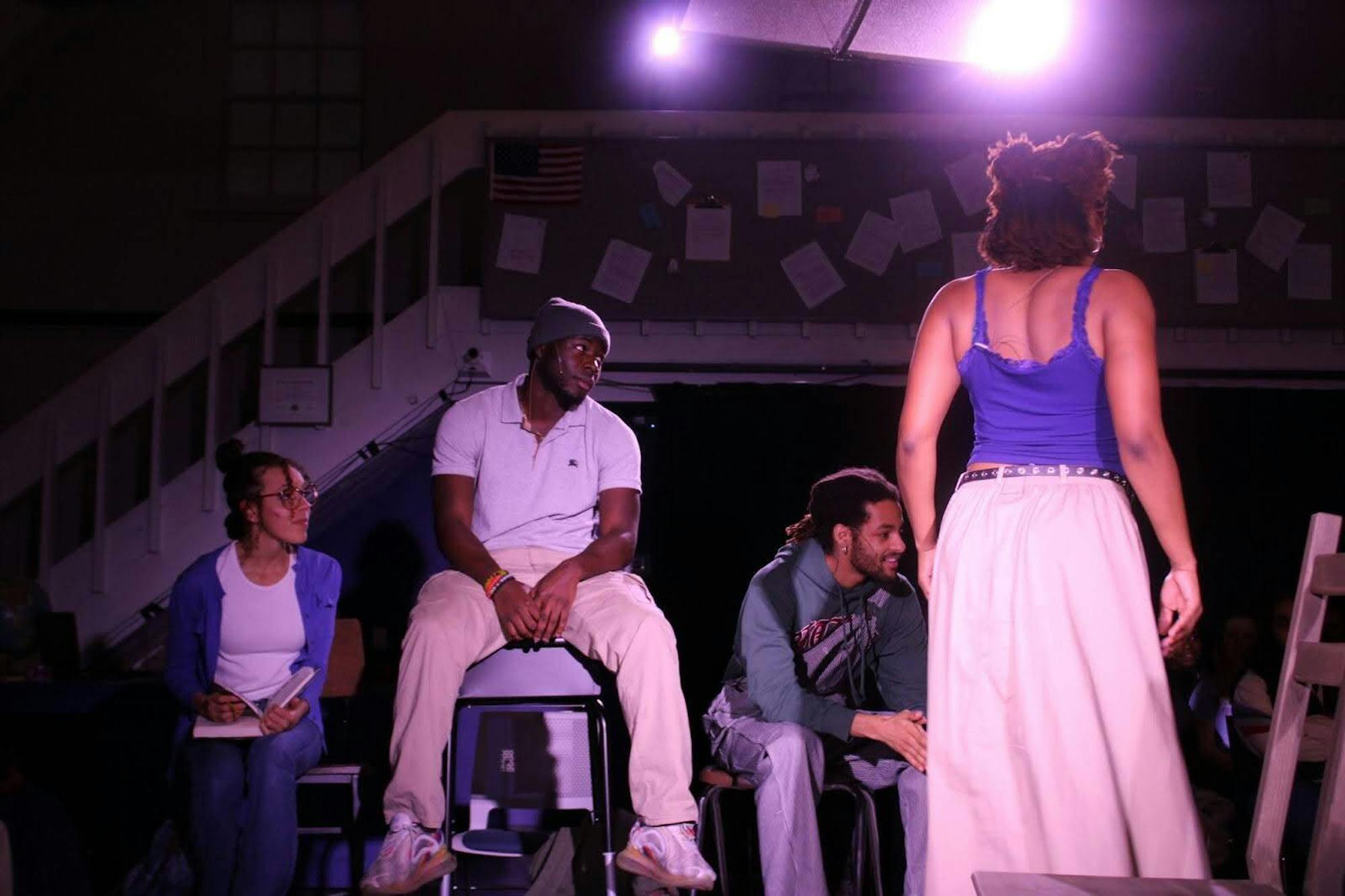On Dec. 1 and 2, Curtis Hall was transformed into a lively after-school detention room for Envision Black Theater’s production of “Exception to the Rule” (2022). The audience watched as six students experiencing detention for different reasons chatted, flirted and argued. As time passes without any sign of the detention monitor, the tension increases as the students decide whether to stay or go. Throughout the play, we learn more about the characters and their relationship with the school system.
“Exception to the Rule,” by playwright Dave Harris, is set in an inner-city public high school. The play begins with six students arriving at detention one by one, each bringing a distinctive personality and perspective. We are first introduced to Mikayla (Ayah Harper) and Tommy (Pauly Osmond), whose playful conversation about Mikayla’s ex instantly intrigues the audience. Abdul (Wanci Nana) isn’t so interested in socializing and keeps to himself, maintaining a reserved attitude. Dayrin (Ayomide Oloyede) joins Mikayla and Tommy’s conversation when he enters the classroom and speaks his mind. Dasani (Sarah Simmons) is spirited and sweet, but nonetheless argumentative when the time calls for it. Lastly, Erika (Jenny Brown), also known as “college-bound Erika,” arrives to the surprise of the five other students.
Chance Walker, co-founder of Envision Black Theater, explained why she chose “Exception to the Rule” as the theater group’s second show. She was introduced to the play in her sophomore year at a staged reading by Front Porch Arts Collective, co-founded by Maurice Parent, a Tufts professor of theater, dance, and performance studies. Exception to the Rule” had a lot of what she was looking for in a play.
“Envision wants to tell stories that are just different from what’s been out there that highlight Black joyful experiences, Black art, not just trauma, and [stories] that are funny and deep and good,” Walker said. “‘Exception to the Rule’ does that.”
The play is structurally similar to “Waiting for Godot” and “The Breakfast Club,” but differs thematically in its portrayal of education, community and opportunity. The characters have unique backstories yet find commonality in their experiences through conversation. One of the central issues addressed in the play is how educational institutions impose rules and create a culture that effectively marginalizes Black students. Tensions run high between Erika and Dayrin over their future paths and differing attitudes towards school, and internalized racism is brought to the forefront. The restlessness of the atmosphere is enhanced by the unknown hour, announced every so often over the loudspeaker in a muffled voice. There is a feeling of being trapped, which is especially stressful to Tommy, who experiences panic when there is an indication of danger by a loud noise. In their time spent together in detention, the students come to know one another and empathize with each other.
The dialogue’s strength is in its ability to articulate serious topics while also being playful and heartfelt. The dynamic between characters on stage and each actor’s delivery of their lines was consistently impactful. There was a feeling of connection between the audience and the actors, no doubt supported by the theater-in-the-round set up. The moments of support and understanding between characters were time-stopping and fully immersive. Nuanced lines were timed and delivered with profundity.
Although the theater group was working with a limited budget, they were able to create a convincing and uplifting environment for the performance. According to Walker, their budget came entirely from the ticket sales of their first show. Details such as academic papers posted on the wall and desks arranged on stage created a realistic classroom setting. Walker credits the production team and stage manager Loey Waterman with helping the show run smoothly.
The incredible performances given by the show’s actors can be attributed not only to their talent, but also to their attention and dedication to character development. When asked about the process, Walker explained some of what the team was considering in their effort to bring the story to life.
“We did a lot of character work, a lot of imagining, ‘Where do these people come from? What is their background? What do they go home to?’, and just sitting down and thinking about how we as people can relate to the very human desires that the characters have,” Walker said.
This empathy was evident in each actor’s performance and clearly resonated with the audience. Throughout Saturday night’s performance, audience members around the room were cheering on and enthusiastically responding to the characters. For Walker, this was very rewarding to witness.
“You go to a show like Saturday, and you see how engaged people are,” Walker said. “You see the energy from the crowd, and it’s like, ‘Wow, all this hard work really paid off.’”






